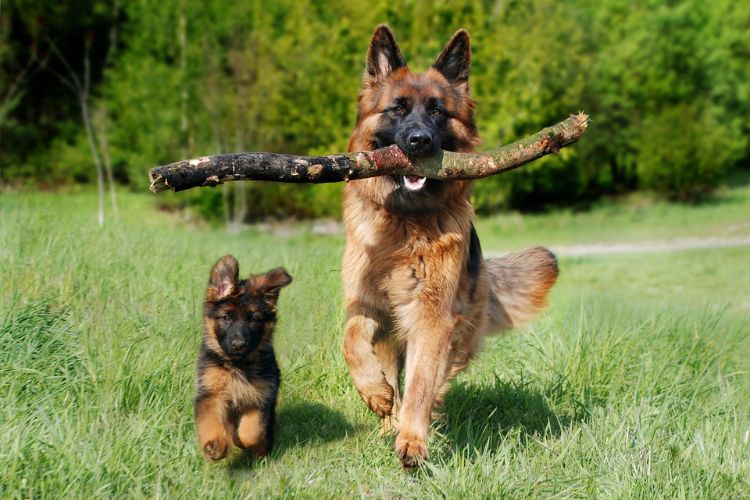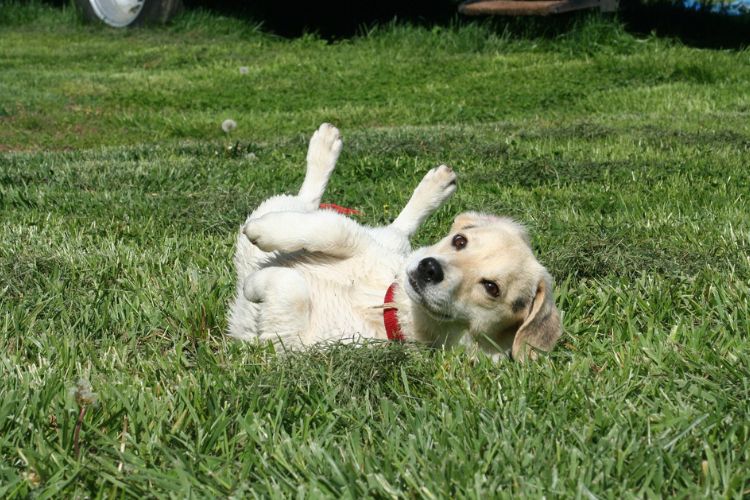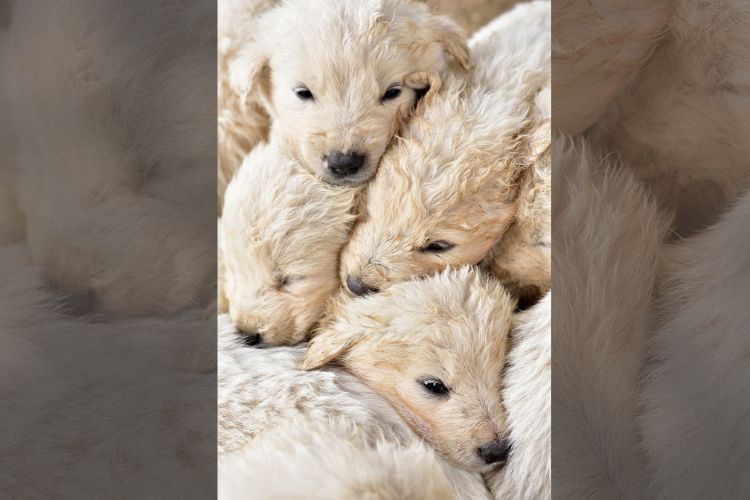Whether you’re a seasoned pet parent or a first-time dog parent, we have some tips for you if you’re looking for a puppy that fits your lifestyle. Not only is choosing the right breed essential, but so is understanding the best age for getting a puppy from a breeder.
The best way of choosing a puppy that fits your lifestyle is by selecting a breed that aligns with your preferred sports and activities. You should also consider veterinary costs, your time allowance for play and exercise, and your home size.
The large variety of dog breeds means an easy mismatch, which can easily lead to unnecessary stress and behavioral problems. It’s essential to carefully consider a breed’s specific traits and characteristics and how they align with your lifestyle before bringing a puppy into your home.
Here’s the takeaway:
Choosing a Puppy at Eight Weeks
The American Veterinary Medical Association (AVMA) says eight to ten weeks is the best age for a puppy to move to a new home. If you’re looking for a purebred dog, you should look for registered breeders from reputable kennels to avoid puppy mills.
Shelters are also often a good source if you’re looking for a mixed-breed puppy, and you can usually find purebred dogs at shelters, too.
Research the Breeds
Researching dog breeds before choosing a puppy helps you to understand more about a specific breed’s needs, exercise, and training requirements.
Watch dog breed videos and training videos and speak to veterinarians, dog trainers, family members, and friends to get advice on the best dog breeds for your family.
Researching all the dog breeds you like allows you to gain insights into various aspects of a breed’s characteristics and needs, ultimately helping you make an informed decision that aligns with your lifestyle and preferences.
When deciding on a dog breed, you should consider whether the breed is more amenable to living in the city, country, or suburbs.
- Temperament and Trainability: Understanding a breed’s temperament and trainability is essential for assessing its compatibility with your household, especially if children or other pets are involved.
- Activity Level: Knowing a breed’s activity level can help determine whether it matches your energy and exercise requirements, ensuring a harmonious fit within your daily routine.
- Grooming and Health Considerations: Researching grooming needs and potential health issues specific to certain breeds is vital for preparing to provide proper care and maintenance.
- Historical Background and Purpose: Learning about a breed’s historical background and original purpose can offer valuable insights into its behavior and instincts.
How to Pick Out a Puppy With a Good Temperament
“The first thing you need to do to start your puppy search is evaluate what you want from a dog. Do you want a protective dog that will help guard the house?
Are you looking for a hiking buddy? Or do you prefer a couch potato,” adds the West Suburban Humane Society.
If you’re looking for a mixed breed, the WSHS recommends researching each breed that a particular dog contains to see if the breed is appropriate for you and your lifestyle.
What to Ask When Choosing a Puppy?
When choosing a puppy, it’s essential to consider various factors to ensure a good match for your lifestyle. Consider your living situation, activity level, and the time you can dedicate to training, socialization, and exercise.
Also, if you have children, consider kid appropriateness, size, and the best breed for your family situation. You should never base your choice only on a breed’s looks alone. Instead, determine exercise needs and temperament.
Additionally, think about any specific requirements or restrictions you may have, such as allergies, space limitations, or the need for a hypoallergenic breed.
How to Pick a Puppy From a Litter
Whether you choose a purebred or mixed breed, your dog’s ancestry will always come into play throughout his life. This is because certain traits represent your dog’s breed, and in the case of a mixed breed, he will have several breeds in his mix and may show one or all traits, although usually, only one tends to dominate.
When choosing a puppy from a litter, you should do the following:
- Temperament: Observe how the puppies interact with each other and with humans. Look for signs of shyness, confidence, playfulness, or aggression, and consider which temperament best aligns with your lifestyle and personality.
- Health: Assess the overall health of the puppies. Look for clear eyes, clean ears, healthy skin, and a playful demeanor. Ensure that the puppies have received appropriate veterinary care and vaccinations.
- Socialization: Evaluate how the puppies respond to new stimuli and interactions. Puppies that are well-socialized early are more likely to develop into well-adjusted adult dogs.
- Energy Level: Consider the energy levels of the puppies and how they match your activity level and living situation. Some puppies may be more laid-back, while others may be highly energetic.
- Compatibility: Discuss your preferences and lifestyle with the breeder or adoption center to receive recommendations on which puppy may be the best fit for your home.
Shy Puppy in a Litter
We looked at Redditor’s comments about shy puppies in a litter, with many Redditors wondering whether a shy puppy would grow into a fearful dog. Here are some Redditor’s remarks:
“I took the most timid pup; she seemed so sweet, so I picked her. I had no idea this timidness meant she would be a more fearful dog.She’s eight months old, and we have worked on a lot of training.
She doesn’t bark at skateboards, people, dogs, etc. She’s a great dog; she’s just not comfortable with strangers petting her and being in loud environments, but overall, she’s excellent.”
“Sometimes it can become a fearful dog. The softest puppy in a litter can grow into a great dog. This is where your training comes in. It’s a complete toss up.”
“I got the shy puppy. Took a few private training sessions and sitting in the corner (and barking/hiding) of our first group class before he came out of his shell.
Now, he loves all dogs and people. He takes a little longer to acclimate to things than some other dogs, but he is truly wonderful, and I’d be lost without him. (5 month old Bernedoodle).”
“I didn’t pick my puppy. My breeder chatted with me for over an hour, thought it over, and chose the perfect puppy for my family.”
What Will My Puppy’s Personality Be?
Determining a puppy’s future personality can be challenging due to the limitations of accurate temperament testing at a very young age.
However, you can assess your pup’s disposition by observing certain behaviors like a pup’s response to touch, ease around people, and reactions to specific interactions.
Additionally, observing whether a puppy willingly rolls over for a belly rub can provide insights; pups that remain in this position are typically easygoing, while those resistant to it may have a more independent nature.
Seeing how a puppy interacts with you and his littermates or other pups will help you understand your new puppy.
Shy or Outgoing Puppies
Paying attention to how your puppy engages with different stimuli, responds to new experiences, and copes with changes can offer additional clues about their potential personality traits.
A puppy that shows curiosity, resilience, and a willingness to explore new things may demonstrate an adventurous and adaptable nature. On the other hand, a puppy that displays nervousness, fear, or aversion to novelty might indicate a more cautious or sensitive disposition.
Red Flags When Picking Out a Puppy
All puppies look cute and may seem healthy and happy. But if you’re wondering about the red flags and unethical breeders, bad breeders will do whatever they can to disguise an unhealthy puppy.
When picking out a puppy, one must be aware of red flags that may indicate unethical breeders. Bad breeders might try to disguise an unhealthy puppy, so it’s vital to recognize signs of irresponsible breeding.
Reputable dog breeders and puppy counselors are also knowledgeable about the breeds they sell and prioritize the health and well-being of their puppies.
Look for clear health certifications, a clean and safe environment, and open communication about the puppy’s background and care.
Key Considerations When Choosing a Puppy
Open communication is essential; a responsible breeder should be forthcoming about the puppies’ socialization, care routines, and any relevant details about their upbringing.
Avoid breeders who are evasive or hesitant to provide detailed information, as this could indicate unethical practices. Prioritize breeders who demonstrate a genuine commitment to the health and happiness of their puppies.
- Health certifications and background information
- Clean and safe environment
- Communication and socialization
- Transparency and detailed information
- Commitment to puppy well-being
Talk to Your Trainer or Veterinarian
Consulting with a veterinarian before bringing home a puppy allows for essential discussions regarding vaccinations, preventive care, and overall health considerations.
A veterinarian can advise on selecting the right breed for your lifestyle and provide valuable nutrition, grooming, and behavioral training information.
Best Age for Puppy Travel
Also, if your puppy has to travel by plane or a long distance to get to you, the breeder may have to wait until the pup has received most vaccinations. The AKC says it’s best to wait until the puppy is at the right age to travel safely.
“Research has shown that puppies removed from their litters very early are more likely to display problems in behavior and temperament when they’re grown, including being fearful, aggressive, or anxious; guarding their food and toys; and being highly reactive and more difficult to train,” says the AKC.
FAQ’s Choosing a Puppy for Your Lifestyle
Q: What is the best age for a puppy to leave its mother?
A: Behavioral experts and dog breeders say the best age for a puppy to leave its mother is between 8 and 12 weeks.
“Those who breed toy breeds especially, including Chihuahuas, Papillons, and other tiny dogs, will keep the puppies until they are 11 to 12 weeks of age,” says The Honest Kitchen.
This is because smaller breeds, like toy breeds, may be slower to mature mentally. A few extra weeks with their parents is better.
Q: Best age to get a puppy from a breeder?
A: The American Kennel Club (AKC) says the best age to bring your new puppy home is between 8 to 10 weeks. This is because socialization is critical. Dr. Sally Foote, via AKC, says that the socialization period in puppies lasts from 6 to 12 to 14 weeks.
During this time, puppies learn about the world around them and tend to keep their attitudes and behaviors as adult dogs. Also, most puppies get weaned and switch to solid food from 3 to 5 weeks old.
Q: How do you choose a healthy puppy from a litter?
A: VCA Animal Hospital says that there are many factors to consider when getting a new dog. VCA advises speaking to the breeder or owner and also watching the littermates in action.
Here are some other things that you should do when choosing a puppy from a litter:
- Look at the litter’s overall appearance and see whether they look healthy and happy. Observe coats and check for hot spots or allergies.
- Watch the puppies move and look out for pups limping or having a clumsy gait.
After looking at the entire litter, VCA Animal Hospital says that you should pick a puppy and give him a closer look and then pay special attention to these areas:
- Eyes: A pup’s eyes should be clear with no redness or drainage. VCA says there should also be no hair loss around the eyes and that puppies should not squint or rub their eyes.
- Ears: The ears should not have a funky smell and no discharge, and the ear flaps should be covered in hair. Pups should also not scratch at their ears.
- Nose: Pups should breathe easily out of their nose without difficulty. There should also be no discolored drainage.
- Head: It’s okay for the top of a pup’s head to have a soft spot, but it should not be larger than a dime.
- Mouth: Gums should be pink and healthy, and top and bottom teeth should align.
- Skin: The pup should be healthy without bumps, redness, or flaking. There should also be no hair loss.
How to pick a puppy?
Video credit: Standing Stone Kennels







